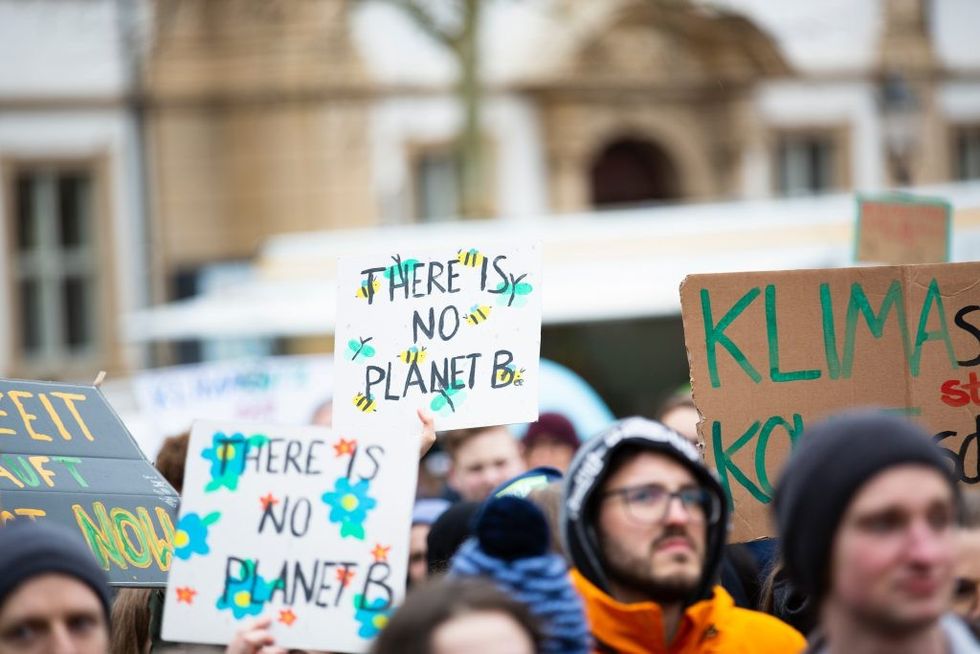If it’s true that, “the internal combustion engine is obsolete,” can Toronto be far behind?
That claim, made by global security expert Paul Rogers on CBC’s Sunday Edition, might have set off alarm bells across Canada, let alone this city. More likely, most listeners laughed it off.
Yet it’s clear what Rogers was getting at. Of course, the internal combustion engine is still very much with us, but the world it has made possible is threatened as never before.
READ: The Cost Of Having A Car In Toronto Is One We Can No Longer Afford
Scientists tell us we are standing on the edge of an irreversible environmental abyss. Others argue we have already been sucked into the vortex of global warming.
As American author Roy Scranton put it: “The biggest problem we face is a philosophical one: understanding that this civilization is already dead. The sooner we confront this problem, and the sooner we realize there’s nothing we can do to save ourselves, the sooner we can get down to the hard work of adapting, with mortal humility, to our new reality.”
This may sound a bit apocalyptic, but Scranton’s words have the ring of truth about them. The climate emergency won’t reveal itself in a single instant a decade or two or three from now; it will unfold – is unfolding -- daily, weekly, monthly while we, frogs in the proverbial pot of boiling water, sit around enjoying the heat.
According to recent polls, three-quarters of Canadians believe that environmental destruction is a major issue, but only half would be willing to pay more than $100 annually to fight global warming. That’s about 30 cents a day. In another survey, 42 percent of Canadians agreed the climate crisis qualifies as an emergency.
READ: Zero Carbon Buildings Are A Win-Win For Environment And Real Estate
One wonders what the other 58 percent are waiting for: a sign from above? People in eastern Canada might think the arrival of Hurricane Dorian was exactly that.
But Toronto is fortunate; it doesn’t get many hurricanes. The last one to devastate this good burg was Hurricane Hazel. In 1954, it turned the Humber and Don rivers into raging torrents that ravaged the city killing dozens, especially in the west end. More recently, a torrential downpour in July, 2013, brought the city to a standstill and led to insurance claims of almost $1 billion.
Hurricanes notwithstanding, Toronto isn’t immune to climate change. How could it be? No part of the world can avoid climate change. Indeed, global warming is unfolding in Canada faster than anywhere else on the planet.

That’s why Torontonians must act collectively to build a new city that, though it can’t escape the effects of the Anthropocene, does what it can to adapt to the reality in which we live. The idea that we can keep things as they are, or that tomorrow will be the same or better than today, no longer applies.
At a time when change has become a dirty word, and in a city where NIMBY-ism is civic dogma, that won’t be easy.
Our fear of change can be seen at all levels and at every turn. Most obviously, the city has grown more dependent than ever on the automobile, i.e. the internal combustion engine.
Though 44 percent of oil is used for transportation, the city has done little to encourage the shift to other forms of transit. Car culture remains Toronto’s top priority. It takes precedence not just over the environment but over human safety itself. More pedestrians and cyclists are killed on city streets than when Mayor John Tory led the charge to implement the Vision Zero road safety plan two years ago.
Rather than remake city roads, local politicians would prefer to leave things as they are. That came clear when they voted to replace and expand the east end of the Gardiner Expressway against the advice of city staff. Though the $2.3 billion price tag could be much better spent in myriad ways, council opted to reassure car-dependent Torontonians that things will stay the same.
“There, there,” they reassured drivers, “everything will be fine.”
READ: How This Retired Couple Is Building The Home Of The Future: A Passive House
To be fair, when Mayor Tory went to former Ontario premier Kathleen Wynne in 2017 to approve tolls on the Don Valley Parkway and the Gardiner Expressway, he was turned down. In the meantime, the National Association of City Transportation Officials (NACTO), now meeting in this city, has called for congestion fees, real time traffic control and “more sophisticated freight efforts.” Torontonians aren’t holding their breath for any these measures to be adopted soon.
Just as calls to redesign Toronto streets have gone unheeded, so too will these.
Even more disturbing, perhaps, is how the city and province have turned transit planning into a political game that everyone plays but no one wins. The basis of our collective failure to take transit seriously is a foundational assumption that cars are essential and will be forever. Though cities in the US, Europe and Asia have restricted cars, Toronto has remained resolutely committed to the ways of the past. As recently as 2010, the then mayor of Toronto, Rob Ford, talked about the “war on the car.”
Our reluctance to open up the roads to cyclists is also an example of Toronto’s auto addiction. But now, perhaps for the first time in history, the future is more frightening than the past. Resistance isn’t only futile; it’s fatal.
At a time of climate crisis, the most pressing issue is the need to prepare for what lies ahead. Carbon taxes and electric cars alone won’t do it. We need new ways to plan the city and its infrastructure as well as how we get around.
Either we will control the future or it will control us.





















